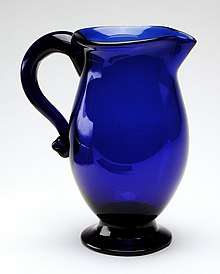إبريق
See also: ابریق
Arabic

إِبْرِيق
Etymology
From Middle Persian or Parthian *ābrēq possibly via Classical Syriac ܐܖܪܝܩܐ (ʾaḇrēqā), attested as Classical Persian آبریز (âbrēz) from آب (âb, “water”) + the present stem of the verb ریختن (rêxtan, “to pour”).
Pronunciation
- IPA(key): /ʔib.riːq/
Noun
إِبْرِيق • (ʾibrīq) m (plural أَبَارِيق (ʾabārīq))
Declension
Declension of noun إِبْرِيق (ʾibrīq)
| Singular | basic singular triptote | ||
|---|---|---|---|
| Indefinite | Definite | Construct | |
| Informal | إِبْرِيق ʾibrīq |
الْإِبْرِيق al-ʾibrīq |
إِبْرِيق ʾibrīq |
| Nominative | إِبْرِيقٌ ʾibrīqun |
الْإِبْرِيقُ al-ʾibrīqu |
إِبْرِيقُ ʾibrīqu |
| Accusative | إِبْرِيقًا ʾibrīqan |
الْإِبْرِيقَ al-ʾibrīqa |
إِبْرِيقَ ʾibrīqa |
| Genitive | إِبْرِيقٍ ʾibrīqin |
الْإِبْرِيقِ al-ʾibrīqi |
إِبْرِيقِ ʾibrīqi |
| Dual | Indefinite | Definite | Construct |
| Informal | إِبْرِيقَيْن ʾibrīqayn |
الْإِبْرِيقَيْن al-ʾibrīqayn |
إِبْرِيقَيْ ʾibrīqay |
| Nominative | إِبْرِيقَانِ ʾibrīqāni |
الْإِبْرِيقَانِ al-ʾibrīqāni |
إِبْرِيقَا ʾibrīqā |
| Accusative | إِبْرِيقَيْنِ ʾibrīqayni |
الْإِبْرِيقَيْنِ al-ʾibrīqayni |
إِبْرِيقَيْ ʾibrīqay |
| Genitive | إِبْرِيقَيْنِ ʾibrīqayni |
الْإِبْرِيقَيْنِ al-ʾibrīqayni |
إِبْرِيقَيْ ʾibrīqay |
| Plural | basic broken plural diptote | ||
| Indefinite | Definite | Construct | |
| Informal | أَبَارِيق ʾabārīq |
الْأَبَارِيق al-ʾabārīq |
أَبَارِيق ʾabārīq |
| Nominative | أَبَارِيقُ ʾabārīqu |
الْأَبَارِيقُ al-ʾabārīqu |
أَبَارِيقُ ʾabārīqu |
| Accusative | أَبَارِيقَ ʾabārīqa |
الْأَبَارِيقَ al-ʾabārīqa |
أَبَارِيقَ ʾabārīqa |
| Genitive | أَبَارِيقَ ʾabārīqa |
الْأَبَارِيقِ al-ʾabārīqi |
أَبَارِيقِ ʾabārīqi |
References
- “ˀbryq”, in The Comprehensive Aramaic Lexicon Project, Cincinnati: Hebrew Union College, 1986–
- Cheung, Johnny (2017) On the (Middle) Iranian borrowings in Qurʾānic (and pre-Islamic) Arabic, Leiden: Leiden University, pages 2–3
- Fraenkel, Siegmund (1886) Die aramäischen Fremdwörter im Arabischen (in German), Leiden: E. J. Brill, page 15
- Jeffery, Arthur (1938) The Foreign Vocabulary of the Qurʾān (Gaekwad’s Oriental Series; 79), Baroda: Oriental Institute, page 46–47
This article is issued from
Wiktionary.
The text is licensed under Creative
Commons - Attribution - Sharealike.
Additional terms may apply for the media files.